The New Generation Gap
September 22nd, 2008
To begin a cross-generational awareness and managing a multigenerational work force training program, participants were asked to write down stereotypes of each generation.
The Business Council of Westchester members wrote descriptions of “young” for Gen. Y, “driven” for Gen. X, “ethics” for baby boomers and “old-fashioned” for traditionalists during the program, given by KATEN CONSULTING L.L.C., at SUNY-Purchase Sept. 17.
“Generational differences between employees is an issue we hear a lot about from our members, whether they have 10 employees or 300,” said Business Council President/CEO Marsha Gordon. “Fortunately, KATEN CONSULTING was able to serve as a great resource on this topic, providing a forum for business owners, managers and HR professionals to share challenges and solutions.”
Generations are categorized by year of birth: Gen. Y (after 1980) Gen. X (1965-1980) Baby Boomers (1946-1964) and traditionalists (before 1946).
Values of each generation differ: for the younger generations of X and Y, it’s innovation, technology, change and work/life balance; for the older generations, loyalty and hard work are most valued.
The program, sponsored by Berkley College, focused on managing differences and similarities across generations and equipping managers to foster high engagement across the generations.
“We’ve had so many requests for workplace training programs to talk about cross-generational training,” said Laura Katen, Gen. X and president of KATEN CONSULTING L.L.C.
Katen is a Business Council ambassador, and she was a “Rising Star 40 Under 40” honoree in 2006.
“Over the next five years, 10 million Generation Y’ers are going to be graduating college and entering the work force, so when you have those kinds of numbers you have to understand how to deal with different personalities and different people who are really going to be the vast majority of our work force.”
Katen said traditionalists and the baby boomers have a different mentality for the work place, come from different backgrounds and have different influences that have shaped their lives. Sometimes the older generations have stereotypes and preconceived notions of how younger generations are going to perform at work.
“There are tons of similarities (between generations) but I don’t think people always see that, and people view it as a problem when many times it’s not an age thing, it’s maybe a workplace communication or miscommunication thing,” Katen said.
Steve Gill, senior managing consultant, said management ideas today are “industrial age” and with the speed of change and need for flexibility as technology transforms organizations the management challenges are radically different.
“One of my passions is helping organizations and managers create environments where people can come to work be able to bring their strengths and their passion and their engagement to work, and be fulfilled, but at the same time help the organization reach very high levels of performance,” Gill, a baby boomer, said. “We have an epidemic of dysfunctionality in organizations. Most people are very unhappy in their jobs, and most organization’s performance levels aren’t very high. I think there’s a major disconnect between the challenges of running organizations today and the management skills and philosophies that are brought to bear.”
Gill said he thinks people’s vision and concept of what management is often is inadequate often because the manager hasn’t been trained.
Also, “people don’t have conversations,” Gill said. “I think it’s very important for managers to have a real conversations with the people that they work with. Just talking to people creates relationships and bonds and mutual understanding, which is vital in an organization and is the bedrock of how good teams work.”
-Mary Sue Iarocci, miarocci@westfairinc.com
Westchester County Business Journal, September 22nd, 2008


Leave a Reply
Want to join the discussion?Feel free to contribute!